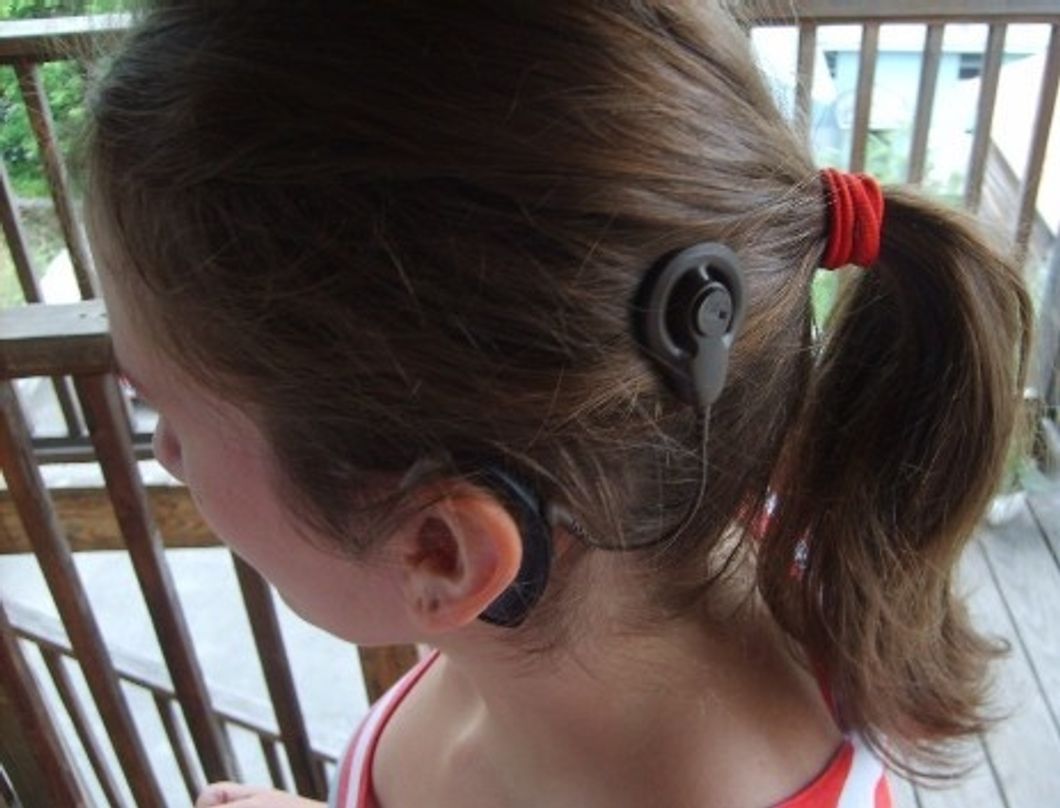My Emotional Support Dog Got Me Through College, And She Is The Biggest Blessing
The facts and benefits of emotional support animals.
Before I begin talking about the benefits of having an emotional support animal, I would like to simply state that disorders, physical or mental, are not competitions and should not be questioned by un-knowledgeable outsiders of an individual's disorder.
I would also like to state that emotional support animals genuinely help people and should not be taken advantage of by individuals who do not truly have an underlying disorder.
Emotional support animals have proven to help mental and intellectual disorders, with depression, anxiety, eating disorders, bipolar disorder, and PTSD being among a few. ESAs differ greatly from a traditional service animal as service animals go through intense training, ranging from 2-4 months, in order to effectively assist their human who suffers from a physical disorder.
Although service animals do provide mental and emotional support, they must be able to complete an action that their human is not able to perform themselves in order to receive the "service animal" status. These dogs are also referred to as "working dogs" and outside individuals are expected to not distract the canine from performing their service.
Unlike service animals, emotional support animals receive less federal protections and only cover accommodations for airlines and housing. Private businesses, for example, are not required to allow emotional support animals into their facilities but are required by law to allow service animals.
Emotional support animals are not required to go through the intense training that service animals are. The support from these animals comes from their mere presence, not from any specific act they perform.
Now that I have established the difference between emotional support animals and service animals, I want to talk about how having an emotional support animal is the sole reason I am graduating.
My specific disorders are generalized anxiety and depression. I have suffered from countless panic and anxiety attacks, as well as overwhelming feelings of depression throughout college. I have taken medication since I was 18 years old and I can honestly say that I would not be where I am today without an emotional support animal.
Medication worked for me until I moved away from home and quickly realized that the effectiveness of my medicine was diminishing. After talking to my doctor and discussing the possibility of an emotional support animal, we decided that was the best course of action for me, along with continuing my medication.
Having an emotional support animal was beneficial for me for a variety of reasons. The most important reason is that it made me get out of bed every day. When depression hits, it can hit hard and can cause an individual to lose their sense of self, as well as motivation. Having my emotional support animal has helped me live as normal of a life as possible.
Whether it was having to take her outside, feed her, or just give her some cuddles, he forces me to get out of bed. My emotional support animal has also been beneficial for when I suffer from anxiety or panic attacks.
Dogs and animals, in general, are naturally in tune with human emotions and crave a similar emotional bond that we do. They are able to sense when something is not okay with their human and will do whatever they can to be there for you, as you would for them.
Emotional support animals should only be used if you have exhausted other methods of treatment for your disorder and should not be used to wave a pet deposit on an apartment. If you have tried medication for a mental disorder and it isn't working, then you may want to look into getting an emotional support animal of your own.
Talk to your doctor or psychiatrist about your options and whether an emotional support animal would be a good fit for you.


























